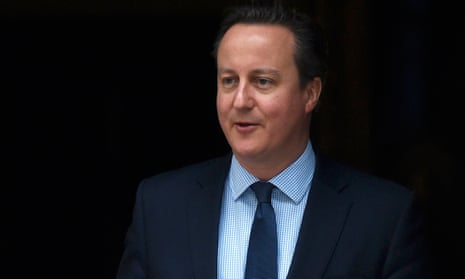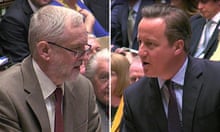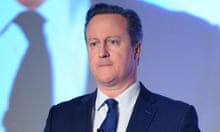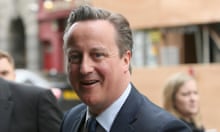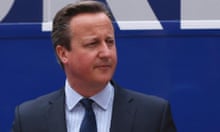Several of the donors, MPs and financiers who have supported David Cameron’s rise to power have had links to the UK’s network of tax havens, the Panama Papers reveal.
Three former Conservative MPs and six members of the House of Lords are among those with connections to companies on the books of the offshore law firm Mossack Fonseca.
Though it is legal to manage money offshore, the practice has drawn increasing criticism during years of enduring austerity.
The British prime minister has been calling for reforms, recognising – along with other world leaders – that the system is too secret and in need of an overhaul.
In 2012, Cameron criticised complex offshore structures saying it is “not fair and not right”. At a G8 summit in Enniskillen three years ago, he demanded more transparency, saying this would be better for business in the UK.
Last year, he added: “I’ll continue to make the case for transparency with international partners, including the British overseas territories and crown dependencies. And I am willing to go further, and take concrete steps to force the pace.”
However, critics say world leaders are dragging their feet – fears fuelled in the UK before last year’s general election when it emerged that many Tory candidates were receiving donations from offshore tax havens.
Cameron will have a chance to challenge doubters who say he has benefited from an opaque system by pushing for reforms at an “offshore” conference he is hosting in London next month. Under the spotlight will be tax havens such as the British Virgin Islands, which are among the biggest providers of offshore secrecy.
There is no evidence the politicians and donors have done anything wrong. But the disclosures raise legitimate questions for an ongoing public debate about the ethics of tax havens, whether there should be more transparency from those go offshore, and whether they will continue to do so following the revelations in the Panama Papers.
The businessmen include:
Tony Buckingham
According to the documents, the energy company Heritage Oil, founded by the Conservative donor Buckingham, “urgently” moved its corporate registration from one tax haven to another, which could have permitted it to avoid hundreds of millions of pounds in tax.
Mossack Fonseca was ordered to transfer the company registration from the Bahamas to Mauritius after Heritage was faced with a large tax bill in Uganda over the sale of an oil field. Records show that at one point, the company’s chief financial officer demanded a junior member of the Mossack Fonseca team be sent to sit in the Bahamas registry office in order to speed up the process, saying the delay was “ridiculous”.
The emails appear to show Heritage Oil’s attempt to use a tax loophole to avoid a huge capital gains tax bill. One employee described changing the company’s domicile as of “primordial importance” to Heritage Oil. Heritage Oil insists this issue has yet to be resolved.
Under a “double taxation” treaty between Uganda and Mauritius, Heritage Oil planned to avoid paying tax in Uganda by paying a much smaller sum to the Indian Ocean island country.
In an email in February 2010, Heritage’s administration office in Guernsey sets out the basis of the transfer. “We are emailing you both because we urgently need to re-domicile HGOL [Heritage Oil] to Mauritius primarily due to the double tax agreement between Uganda and Mauritius,” wrote the employee. He warns that the energy asset in Uganda is due to be sold within “the next 11 days.”
A spokesman for Heritage Oil said it was not able to respond in detail because it touches on issues still before the courts.
“Although only a subsidiary issue in Heritage Oil’s ongoing litigation with the Ugandan government, it is a fact that the process of re-domiciling one of Heritage Oil’s subsidiaries from the from Bahamas to Mauritius had begun long before the completion of the transaction that ultimately gave rise to the tax dispute with the Ugandan government. The process of re-domiciling was commmenced for a variety of reasons.”
Buckingham has given the Conservatives more than £100,000.
The company also pointed out that all the oil and gas licences owned by Heritage were held outside the UK and all its operations were carried out overseas. The company also pays national insurance and other taxes.
Michael Mates
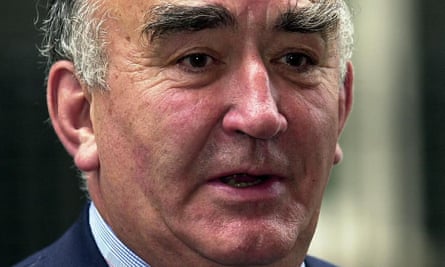
Mates, who stood down in 2010 as member of parliament for East Hampshire, was a shareholder in a company called Haylandale, which leased a large area of land in the Caribbean island of Barbuda. The former Conservative MP said he was invited to become the chairman of the company to help “deal with” the government of Antigua and Barbuda.
Haylandale was established in 2003 to lease and develop a beach resort in Barbuda.
“After it was formed, I was invited to become chairman by a friend who was on the board, as my advice was sought on a number of matters concerning the company’s business,” said Mates. He said his shareholding was “small and uninfluential” and that the company’s attempt to develop a hotel had failed.
“I was to receive no remuneration unless and until the development took place, nor were the shares of any value. The company has never had any real value,” he said.
Mates registered his interest with the appropriate authorities in parliament.
Anthony Bamford
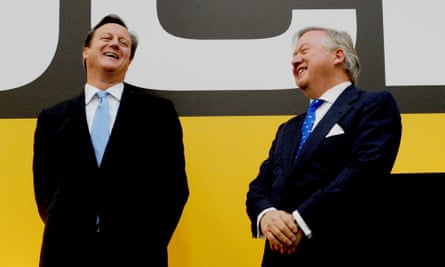
The JCB heir Lord Bamford closed down a company registered in the British Virgin Islands just months before he joined the House of Lords, according to documents seen by the Guardian.
The decision to hand a peerage to the one of the Conservative party’s biggest donors is likely to raise further questions about the prime minister’s commitment to crack down on the use of offshore tax havens.
Bamford, who has given the Conservatives more than £4m personally and through JCB companies, was recommended for a peerage by Cameron shortly after the Conservatives formed a government in 2010. However, the businessman then withdrew his name from consideration.
Documents from the law firm Mossack Fonseca seen by the Guardian reveal that Bamford had been the sole shareholder in a British Virgin Islands company called Casper Ltd since 1994. The company was dissolved in 2012. The then Sir Anthony Bamford was granted a peerage in 2013.
A spokesman for Bamford said: “Casper Limited was dissolved in 2012 having been an inactive company for its entire existence. It never owned any assets, held a bank account, formed part of any corporate structure or ever engaged in any activity whatsoever.”
David Rowland
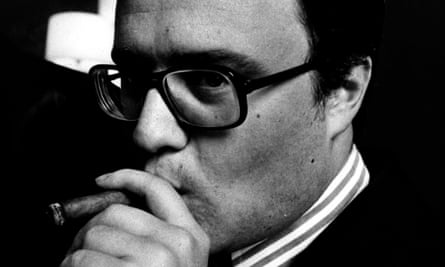
The businessman, who has given the Tories almost £3m, is a shareholder in dozens of offshore companies. Along with members of his family, Rowland held shares and property in British Virgin Islands screen entities.
Company names go through the letters of the alphabet – Asherton Ltd, Binbrook Ltd, Coalburn Ltd, Docking Ltd. One of their companies – Blackfish Capital – bought a division of the collapsed Icelandic bank Kaupthing in June 2009, with the banking operations being restructured into the Luxembourg-based Banque Havilland, named after Rowland’s Jersey mansion.
Rowland declined to comment.
The Fleming family
The Fleming family, who helped bankroll Cameron’s bid for the leadership of the Conservatives and have given the party millions, used the Panamanian law firm’s network to manage their own fortune.
After selling the merchant bank Flemings in 2000 for $7.7bn, members of the family opened a private office, Fleming Family & Partners, to manage their money. Over the next few years, FF&P gradually expanded, taking on wealth management for other rich families from offices run out of the tax haven of Liechtenstein. Now known as Stonehage Fleming, the family office has registered at least 18 Mossack Fonseca companies from its Liechtenstein office. A spokesman for Stonehage Fleming declined to comment.
Howard Flight
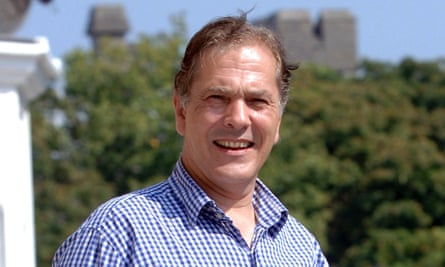
The Tory peer, a former deputy chair of the party and shadow chief secretary to the Treasury from 2002 to 2004, was also active offshore. His Guinness Flight asset management business included a trust company in Guernsey that used Mossack Fonseca companies to manage investments on behalf of his clients.
Lord Flight said: “I ceased to be a director of the Guernsey Trust Company in 1998 upon its acquisition by the Investec Group. Also, I have had no involvement with the Guernsey Trust Company for 18 years and know nothing of its business during this period.
“Guinness Flight Trustees was not involved in advising either individuals or companies on reducing their UK tax liabilities and, to the best of my belief, had no involvement in harbouring the proceeds of crime, facilitating tax evasion, sanctions evasion, money laundering or bribery and corruption,” said Lord Flight. “Disciplines were in place to check against such involvements.”
Flight said he had continued as a director of Investec Asset Management, but was not involved in the trust company.
Sir Tony Baldry
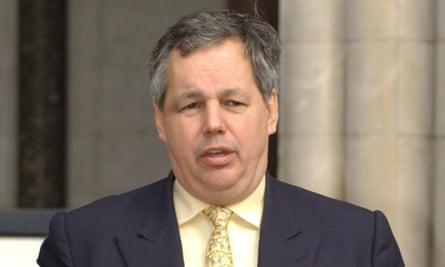
Baldry, who stood down as the Tory MP for Banbury at the last election, chaired a British Virgin Islands company called Westminster Oil Ltd, which appears in the Mossack Fonseca data. Westminster Oil, in turn, owns shares in a second BVI company called Westminster Caspian, which operated in Kazakhstan.
Baldry said Westminster Oil had been registered as an interest with the House of Commons, but as a wholly owned subsidiary, Westminster Caspian did not need to be registered.
“The BVI jurisdiction was chosen because the shareholders and directors came from a number of different countries, including the United Kingdom, the United States and Kazakhstan,” said Baldry.
“Given that the project was based in Kazakhstan, and given that the directors and shareholders came from the United States, the United Kingdom and Kazakhstan, whatever jurisdiction was chosen to register the company would inevitably have been ‘offshore’ to a number of the shareholders and directors.”
He added that all directors’ fees had been reported to HMRC.
Sir Edward du Cann
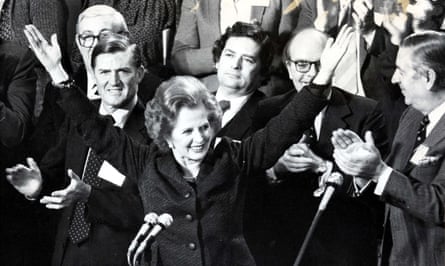
Du Cann, who was instrumental in Margaret Thatcher’s rise to power, retired from parliament in 1987 but he appears in 2007 as a director of a BVI company called Sunshine Technology Group. Du Cann said: “I have had no connection with the companies in question, whose business was entirely legitimate and in the interests of the country where we were working, since 2008.”
Lord Astor of Hever
The former defence minister, whose grandfather owned the Times until 1966, also appears in the files, in relation to a Panamanian company called Vicata. Astor, who left government at the last election, shut down Vicata more than 20 years ago.
Astor said the company was set up while he was working in France. “I think it was set up for a deal we were working on that didn’t come to fruition and the company was never used,” he said. “This was set up when I was a French resident and taxpayer so there were no British tax issues,” he added.
Juniper Equities Trading
The Mossack Fonseca files also shed light on a mysterious company called Juniper Equities Trading, which was set up in the British Virgin Islands in July 2004. In December 2004, months after being created, Juniper lent the Conservative party £250,000.
In 2005, the cash-for-honours scandal broke, when it emerged that businessmen had lent political parties large sums of money before the election. Several of the businessmen were then put up for peerages. At the time, loans to political parties did not have to be declared. Electoral law was changed soon after to ensure full disclosure of loans.
In 2013, the Juniper company was transferred from the British Virgin Islands to Switzerland. In an email between Mossack Fonseca employers in January 2014, they note that the company was set up solely “pour faire des prêts à des entités proposées et choisies par actionnaire de la société” (to make loans to entities proposed and chosen by the shareholder).
After nine years of borrowing the money, the Conservatives repaid the loan in May 2014, without ever disclosing who was behind the company.
The Conservative party refused to comment on Juniper’s ownership and added: “This was an historic loan which has been repaid in full.”
Donors and politicos from other parties also appear in the data.
Lord Bilimoria
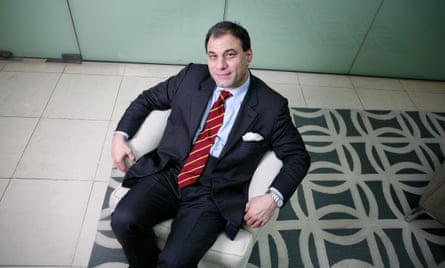
The crossbench peer, who founded Cobra Beer, appears as one of more than 100 shareholders in a Virgin Islands company called Mulberry Holdings Asset Limited. Cobra collapsed into administration in 2009 after which Lord Bilimoria was criticised for using a “pre-pack” deal to buy back a stake in the firm. He spoke out against claims he abandoned creditors with debts of £71m, and promised to repay them some of the cash.
Lord Bilimoria said that Mulberry was a dormant company formed “for my ex-shareholders in Cobra, many of whom are not resident in the UK”.
Bilimoria said: “I am taxed in the UK on all my global income and all of my interests are declared to the relevant authorities.”
Arron Banks

Banks, who has given Ukip more than £1m and is spearheading the anti-EU referendum campaign, appears as the shareholder of a BVI company called PRI Holdings Limited. Shares from PRI were also transferred to Elizabeth Bilney, the chief executive of Leave.eu. PRI Holdings is in turn the sole shareholder of African Strategic Resources Limited, which is a British Virgin Islands company managed in Gibraltar.
Banks declined to comment.
Panama Papers reporting team: Juliette Garside, Luke Harding, Holly Watt, David Pegg, Helena Bengtsson, Simon Bowers, Owen Gibson and Nick Hopkins
